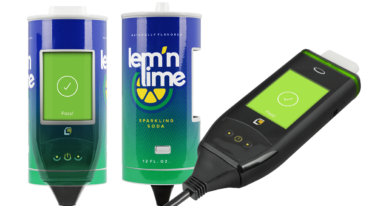
Impaired driving remains a significant problem throughout the country. According to the Centers for Disease Control and Prevention, an estimated 28 people die every single day in the United States in motor vehicle crashes involving an alcohol impaired driver. That equates to about one death every 51 minutes. Alcohol-related crashes also present a huge burden to our economy, totaling about $44 billion in various costs annually. So, that raises the question, is a DUI a felony or a misdemeanor?
Driving under the influence (DUI), driving while intoxicated (DWI), operating a vehicle while intoxicated (OWI), it goes by many names throughout the country, but the laws governing these laws are all designed to prevent drunk driving and reduce injuries and damage that it causes. Is a DUI a criminal offense? Yes, and a severe one at that, but not many people know if a DUI is a felony or a misdemeanor. Read on to learn more about DUI offenses and the difference between felonies and misdemeanors.
Is a DUI a Criminal Offense?
Drunk driving, or driving under the influence, is legally described as operating a vehicle while your blood alcohol content is above the legal limit. While the legal limit might vary in certain states and jurisdictions, most areas have a legal BAC limit of 0.08 percent. Many states also have laws that punish higher blood alcohol concentrations of 0.15 percent and above. These more extreme DUI cases often result in harsher penalties and license restrictions. Those who are under the legal drinking age will suffer penalties for any amount of alcohol found in their system, while those who operate commercial vehicles for work often cannot have a BAC that exceeds 0.04 percent.
A DUI is a criminal offense, meaning that you can be tried and sentenced in a court of law and suffer criminal penalties. In many states, the Department of Motor Vehicles (or related agency) will also enforce administrative penalties on top of any criminal penalties you face from being charged with a DUI.
What is the Difference Between a Felony and a Misdemeanor?
Laws generally treat felonies and misdemeanors differently, and much of the difference between the two comes down to the penalties and imprisonment involved. Felonies and misdemeanors are the upper levels of a criminal offense, the least severe being infractions. Misdemeanors are more serious than infractions but not as severe as felonies. Misdemeanors comprise more non-violent crimes, including:
- Trespassing
- Petty theft
- Vandalism
- Disorderly conduct
These misdemeanor crimes may result in fines and less jail time, usually less than a year in a local or county jail instead of a high security prison. Misdemeanors do not have any effect on your civil liberties.
Felonies are the most severe type of criminal offense and may include such crimes as:
- Murder
- Robbery
- Grand theft
- Copyright infringement
Some states consider a crime a felony if it is punishable by more than one year in jail, while in other states, crimes are considered felonies if they lead to imprisonment in a state prison or penitentiary. All felonies generally result in a state prison sentence of at least one year. They also lead to the loss of certain civil liberties, including:
- The right to vote
- The right to serve on a jury
- The right to hold public office
- All second amendment rights
Anyone charged with a misdemeanor or felony after the age of 18 will receive a permanent mark on their personal record, which can affect a variety of factors, including a person’s future employment opportunities. Misdemeanors are generally less likely to have an adverse effect on career prospects, unless the crime was closely related to the form of employment.
Some crimes can be expunged, meaning the related documents and records are sealed and no longer available to the public. This also means that you do not have to disclose your criminal history to a potential employer. The process differs from state to state, and you are more likely to get a crime expunged if it is a nonviolent, first-time misdemeanor.
States are allowed to define and classify their own crimes and the punishments resulting from those crimes. The classification of crimes varies wildly state to state. What may be a misdemeanor in one state may be a felony in another state. So to answer the question is a DUI a felony or misdemeanor, it depends.
The categorization of crimes becomes even hazier with “wobbler” crimes. Wobbler is a colloquial term that describes crimes that can be prosecuted either as a felony or a misdemeanor based on the prosecutor, the judge, and any aggravating or attenuating factors.
The line that divides misdemeanors and felonies is more related to penalties that an offender may be punished for, instead of any penalties that must be served, and prosecutors have a high degree of flexibility in determining what to charge, how to punish crimes, and plea bargains to negotiate.
Is a DUI a Felony or Misdemeanor?
Although many state laws differ, the vast majority of drunk driving arrests are charged as misdemeanors. That means that it does not require a preliminary hearing or convening of a grand jury. The general process of a DUI misdemeanor charge involves:
- The initial arrest and charge
- The arraignment
- A pretrial conference
- A trial (if there is not a plea agreement during the pretrial conference)
However, in some states drunk driving offenses can be charged as felonies based on certain criteria. These criteria may include:
- Accruing three or more DUI offenses over a 10-year period (even if the previous DUIs were charged as misdemeanors)
- Driving under the influence with a minor in the vehicle
- Driving under the influence with a suspended, revoked, or canceled license
- Drunk driving that leads to great injury, bodily harm, or death
When charged as a felony, DUIs are much more serious and involve a more intensive court process. A DUI with an injury does not automatically get charged as a felony, as the severity of the injury and surrounding circumstances will determine if it is a misdemeour or a felony. With a felony DUI, you can expect several court proceedings prior to the main trial.
Penalties for a DUI
Penalties for a DUI vary from state to state and even from city to city. Many states have implied consent laws. These laws state that by owning a driver’s license, you automatically give police officers permission to test you for alcohol or drugs if you are pulled over under suspicion of driving under the influence.
If you refuse to take the chemical test, you are breaking the implied consent law and may be subject to various administrative penalties (penalties handed down by the state’s Department of Motor Vehicles) that often comprise license suspensions. Refusing a chemical test is considered a separate offense from a DUI, so even if you are acquitted of any criminal charges, you are still responsible for serving the penalties from a test refusal.
Other states feature admin per se laws. These laws essentially allow an arresting officer to immediately confiscate and suspend your license if you fail or refuse a chemical test. Admin per se laws are enforced by the state’s DMV (or related administration). The penalties are often much more severe for those who refuse a test than those who outright fail the test.
Penalties that stem from implied consent and admin per se laws are in addition to any criminal penalties that result from being found guilty, which often means that you have to serve those penalties on top of any other criminal penalties passed in a court of law.
DUI penalties can vary from state to state. Each case is taken individually and may result in different penalties. Most criminal penalties include a combination of:
- License suspension or revocation
- Prison time
- Fines
- Court costs and legal fees
- License reinstatement fees
- Mandatory participation in drug and alcohol treatment programs
- Installation of an ignition interlock device for a certain period of time
These penalties become more severe with repeat offenses, often resulting in longer suspension, more days in jail, and higher fines. Penalties also tend to be more severe for commercial drivers. Commercial drivers can be pulled over and charged with a DUI if their BAC is 0.04 percent or higher. Along with suspensions, fines, and other punishments, commercial drivers may have their licenses permanently suspended, which can completely take away their main means of income.
Understanding Ignition Interlock Devices
Ignition interlock devices, or car breathalyzers are small gadgets that connect to your vehicle’s ignition system. The device includes a mouthpiece that you must breathe into before you can start your vehicle and sometimes periodically throughout your drive. If the device detects any alcohol in your system, it will prevent you from starting your car for a certain period of time.
Ignition interlock devices have generally been reserved for more severe cases where drivers had previous violations or had a BAC of 0.15 percent or higher at the time of arrest, but they are becoming much more common as a means of dissuading drunk driving in general. If you are ordered to install an ignition interlock device, you are responsible for all costs and service fees involved with installation, regular maintenance, and calibration. You can only have your IID installed and serviced by a state-approved provider.
Low Cost Interlock offers the most affordable ignition interlock device services throughout the country. Our team is dedicated to providing the best equipment backed by unbeatable service. Our ignition interlock devices use patented technology designed for greater efficiency and ease of use for fast, accurate readings without the need for complicated breathing patterns. Our technicians are all professionally trained and offers years of experience.
Your technician will teach you how to properly use your IID and help you through each step of the process to ensure that you complete your ignition interlock program smoothly. If you have questions about how much a DUI costs or need an ignition interlock device right now, please contact us today.


